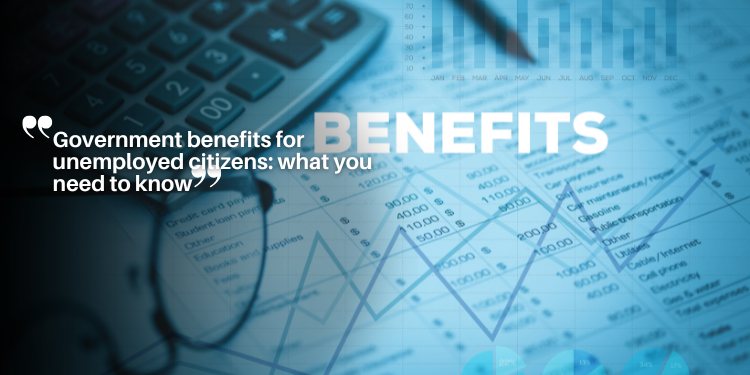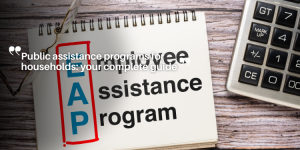Government benefits for unemployed citizens: what you need to know

Government benefits for unemployed citizens include assistance programs like unemployment insurance, food support, healthcare, and housing aid, providing essential resources during job loss and aiding in the transition back to employment.
Government benefits for unemployed citizens can be a lifeline during challenging times. Have you ever wondered how these benefits work and what you might qualify for? Let’s dig in and uncover essential insights that could help you navigate these resources.
Understanding types of government benefits
When it comes to government benefits for unemployed citizens, understanding the various types available is crucial. These benefits can assist individuals facing hardship by providing financial support and essential resources.
Different types of government benefits
There are several forms of assistance that unemployed citizens may qualify for. These programs aim to help individuals and families maintain a basic standard of living while they search for new employment opportunities.
Key government benefit programs
- Unemployment Insurance: This program offers temporary financial assistance to workers who have lost their jobs through no fault of their own.
- Food Assistance Programs: Programs like SNAP provide support for purchasing food, ensuring that individuals and families do not go hungry.
- Healthcare Coverage: Many unemployed individuals can access healthcare through programs such as Medicaid or the Affordable Care Act’s health insurance marketplaces.
- Housing Assistance: Programs may offer help with rent payments or housing grants to prevent homelessness.
Each of these types of benefits can vary by state and may have different eligibility requirements. It is important to check with local agencies to determine what you qualify for and how to apply. Understanding the specifics can enable you to make better decisions about your financial future.
In addition to direct financial benefits, many states offer resources such as job training programs and employment assistance centers. These programs can provide valuable support in finding new job opportunities. Engaging with these resources may help bridge the gap until you find stable employment.
Eligibility criteria for unemployment benefits
Understanding the eligibility criteria for unemployment benefits is essential for those looking for assistance. Each state has specific guidelines that determine who can qualify for these benefits.
Basic requirements for eligibility
Generally, you must meet a few basic requirements to be eligible. This includes having lost your job through no fault of your own, being actively seeking work, and meeting minimum earnings criteria.
Key factors affecting eligibility
- Work History: You need to have a sufficient work history, which varies by state.
- Job Separation: If you were fired for misconduct or quit voluntarily, you may not qualify.
- Availability and Job Search: You must be available to work and actively seeking new employment.
- State Regulations: Different states have distinct rules regarding the duration of benefits and the amount you can receive.
It’s important to gather the necessary documentation before applying. This may include proof of your previous employment and any relevant identification documents. Different states may request varying information, so checking specific requirements in your location can be beneficial.
Moreover, understanding regional differences can greatly impact your application. For example, some states have additional programs that offer extended benefits during tough economic times. Keeping informed will help you navigate through the application process more smoothly.

How to apply for government assistance
Applying for government assistance can seem overwhelming, but breaking it down can help. Here are steps to guide you through the process.
Gather necessary documents
Before you start the application, collect important documents. This includes your Social Security number, proof of income, and any identification documents. Having everything ready will streamline the process.
Research available programs
Different programs offer various types of assistance. Research your options to find which benefits suit your needs best. You can check government websites or local agencies for specific details.
Complete the application
- Online Applications: Many programs allow you to apply online. This method is often the fastest.
- In-Person Applications: You can also apply in person at local offices, which might provide additional help while filling out the forms.
- Phone Applications: Some programs offer phone applications if you prefer to speak with someone directly.
As you fill out the application, ensure all information is accurate. Mistakes can delay the process or lead to a denial of benefits. Once you submit the application, keep a copy for your records.
After applying, be prepared to answer any follow-up questions. You may need to provide more documentation or clarify details. Staying responsive will help you receive your benefits more quickly.
Supporting resources for unemployed individuals
Finding supporting resources for unemployed individuals can be a game changer. Various organizations and programs exist to help those in need cope with job loss and facilitate their return to work.
Local community services
Your local community likely has resources available. Look for community centers that offer job training, counseling, and workshops. These services often provide valuable skills that can enhance your employability.
Online job search resources
The internet is filled with platforms dedicated to job searching. Websites like Indeed, LinkedIn, and Glassdoor not only list job opportunities but also offer resume-building tools and tips for interviews.
Additional assistance programs
- Job Placement Services: These services connect unemployed individuals with potential employers, enhancing job prospects.
- Financial Counseling: Financial advisors can help you manage your finances while you’re unemployed, providing peace of mind.
- Mental Health Resources: Job loss can take a toll on mental health. There are resources available for counseling and support groups.
Staying informed about available resources is key. Many nonprofits and government agencies are dedicated to helping unemployed citizens find paths back to stability. Networking with friends and family can also reveal hidden opportunities.
Remember, approaching this transitional period with a proactive mindset can significantly impact your experience. Seek out those resources and don’t hesitate to ask for help when needed. Utilizing support can lead to better outcomes for your job search and overall wellbeing.
In summary, navigating the world of government benefits for unemployed citizens can be challenging, but many resources are available to support you. Understanding the types of benefits, eligibility criteria, and how to apply can empower you through this difficult time. Additionally, numerous community resources can offer assistance in job searching and skill-building. Remember, seeking help is a strong step toward stability and success. Stay positive and proactive as you work towards finding new opportunities.
FAQ – Frequently Asked Questions about Government Benefits for Unemployed Citizens
What are the main types of government benefits for unemployed individuals?
The main types include unemployment insurance, food assistance, healthcare coverage, and housing support.
How do I know if I am eligible for unemployment benefits?
Eligibility usually depends on your work history, job separation circumstances, and your availability to work.
What documents do I need to apply for government assistance?
You typically need your Social Security number, proof of income, and identification documents for the application.
Where can I find resources to help with my job search?
You can find resources at local community centers, online job platforms, and various job placement services.







